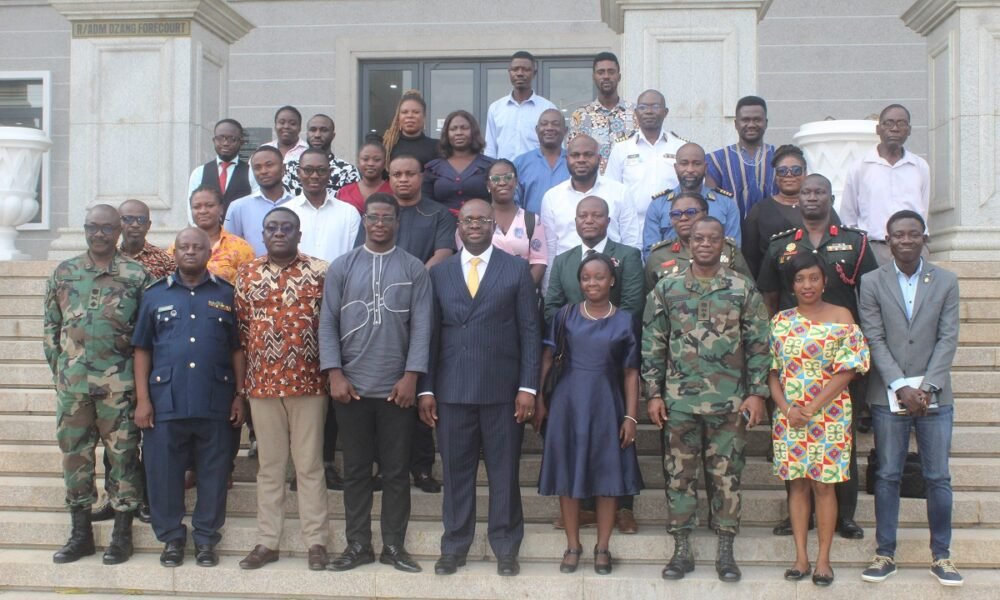News
Recognise, appreciate sacrifice of GAF, key reason for nation’s peace, stability —Defence Minister

The Defence Minister, Dr Edward Omane Boamah, has called on Ghanaians to recognise and appreciate the sacrifices of the Ghana Armed Forces (GAF), emphasising that their dedication is the key reason for the nation’s peace and stability.
Dr Boamah made the remarks during his maiden interaction with members of the Defence Press Corps (DPC) in Accra on Monday.
The Defence Minister urged Ghanaians to support and respect the Armed Forces, highlighting their contributions beyond combat roles. He cited instances where military engineers have provided rapid solutions to infrastructure challenges, such as bridge construction for isolated communities.
“Our soldiers work tirelessly, often behind the scenes, to ensure national security. Their role in disaster response, peacekeeping, and infrastructure development must be recognised and appreciated,” Dr Boamah added.
The Minister also highlighted the government’s resolve to complete all ongoing military infrastructure projects, some of which dates back to 2010.
He stressed the need to cultivate a culture of finishing existing projects before embarking on new ones, noting that proper financing should always be secured to prevent project abandonment.
“We must learn to complete projects as much as possible. When financing is unclear, projects remain unfinished, which should not be the case,” Dr Boamah stated.
He also mentioned innovative financing strategies, including leveraging climate funds for infrastructure projects that contribute to environmental sustainability, such as transitioning to energy-efficient lighting systems in military installations.
Addressing the housing deficit within the armed forces, Dr Boamah disclosed that the military requires about 17,000 additional housing units. He discussed various strategies, including potential public-private partnerships (PPPs) and mixed housing models, where some personnel may be deliberately integrated into civilian communities to enhance security while maintaining a strong presence in the barracks.
“There are advantages when security personnel live among civilians, as it deters crime. However, we must also maintain a significant standby force within the barracks to ensure rapid deployment when necessary,” he explained.
Dr Boamah expressed concern over the devastating effects of illegal mining (galamsey) on Ghana’s environment, particularly water bodies. He revealed that pollution levels in some areas have reached unprecedented levels, making water treatment extremely difficult.
“The Ghana Armed Forces is ready and willing to assist the government in addressing environmental challenges. We need a collective effort to combat the illegal mining menace,” he said.
By Jemima Esinam Kuatsinu